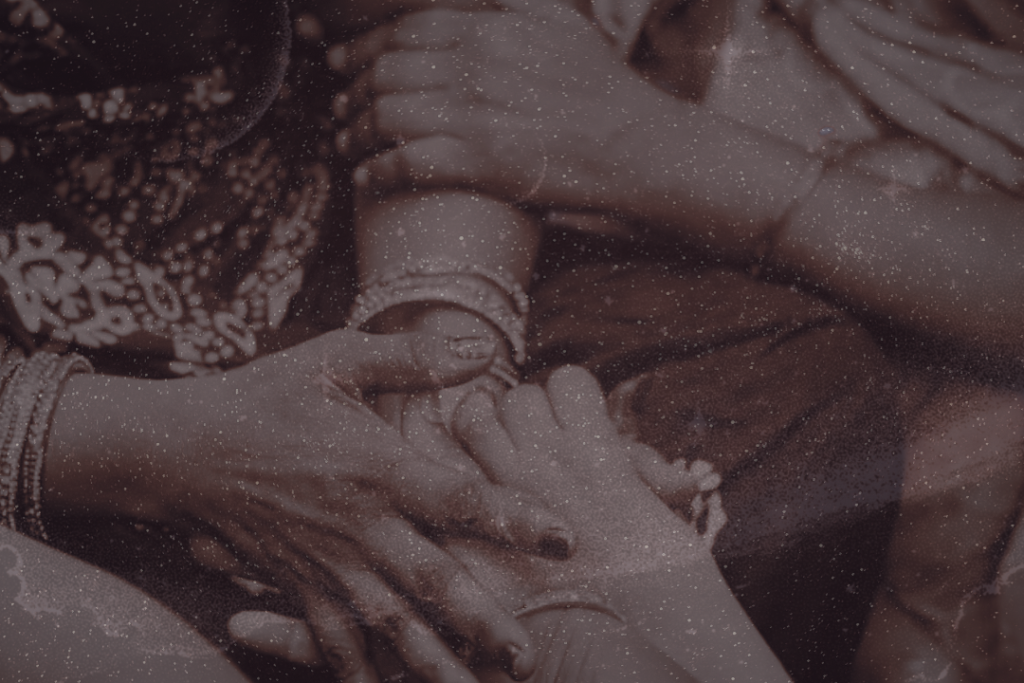I recently witnessed the birth of my niece. Her first look made me believe that there is a piece of that child in me who will fight the oceans to bring an equal world to her. I realise this is the feminist labour of hope that I carry. That I have carried since the day I publicly called myself a naarivadi, a feminist.
It is interesting to note that my mother tongue, Gujarati, cannot fully translate the state of being feminist because the word closest, ‘naarivadi’ translates as the ‘ideology of feminism’, instead of being feminist, as an identity. I think of Nivedita Menon’s essay ‘Seeing Like a Feminist’ and the idea of inviting the lens instead of a full body suit that feminists wear each day.
Translation as a feminist is an inherently political job. For one because mainstream language does not accommodate diverse experiences. I work with tribal women of Gujarat and one of my tasks is to record stories of success in accessing rights through collectivising called Gram Sanghatan. While translating the stories women share into captions, I soon realized that if I do exact captioning, which is ideally the requirement of the job, the words would sound immature. For example—’hu gayeli’ (I went), this to a Gujarati professor would not sound ‘proper’, but to the speaker this is the tone she was born into, the tone she has heard since childhood, and the one she is most comfortable with. She might never have learnt the textbook Gujarati of ‘hu jati hati’ because for her, the definition of proper is different. In this situation, I took the call of captioning it exactly to preserve the mix of Malwa and Gujarat that came out of her mouth. But again, this is the feminist labour of hope, because I believe someday her language will be valued as much as the mainstream Gujarati, even though her children are not learning this mix in their schools, and it is a dialect that may soon be extinct.
I often oscillate between this labour of hope and delusion in my life as I work in the field of prevention and elimination of violence against women and young girls. I write out cases of violence in exact Gujarati verbatim, but the analysis is done in English for a larger audience. For every woman that faces violence, we use the word sangharshjeevi or survivor. This is again the feminist labour of hope because one is surviving through violence instead of being a victim of it. This made sense to me until I saw an unusual rise in cases of death among young women in unnatural circumstances. Most prominently due to her natal family forcing her to marry against her choice.
At this point, I want to diverge a little, and remember the brilliant observation and feminist translation done by Shrayana Bhattacharya on marriages in India. She writes that she has often noticed that women generally speak of marriage as ‘meri shaadi ho gayi’, my marriage happened. On the other hand, men say, ‘maine shaadi kar li’ or I got married. Here language translates agency for different people referring to the exact same event.
So because in India, ‘meri shaadi ho gayi’ is so common, she sees no other choice than eloping or dying by suicide. Both options result in many deaths in the area with little to no police reporting. It is also important to note that unnatural death among young women is not this reductive. But coming back to our case analysis and reporting, we still write ‘survivor’. But how am I to use the word survivor for someone who is already dead? She has not survived, what has survived is the politics of power which led to her death. This means that the word victim makes more sense. She was the victim of a society that exudes patriarchal greed. However, this contradicts the feminist idea of not turning her life into another story of a victim, one soon forgotten. So, how do I translate hope in this narrative?
Each case work analysis is a step towards hope, but what to translate, what to write when people become stories and language becomes unnatural? This is why the feminist labour of hope feels like a delusion. What language is the language of the survivor? What is my role as a case worker, in translating this story? Would she have wanted to be remembered for her last days or for the person she was, before the incidence of violence? Can I call her neither victim nor survivor? Rather what Rohith Vemula calls as ‘glorious thing made up of stardust’.
So I want to end this essay with unease. This effect of suddenness of violence, that each ‘survivor’ or ‘victim’ or a ‘glorious thing made up of stardust’ must be feeling before society snatches her light. One in three is not just a figure, it is our shared reality, our albatross.


